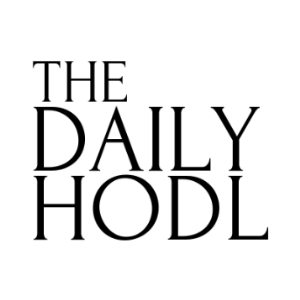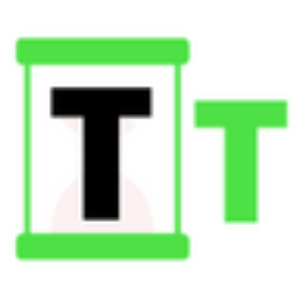SEC Raises Concerns Over Tokenized Assets While Robinhood Shares Surge
6 min read
US Securities and Exchange Commission (SEC) Commissioner Hester Peirce issued a public warning this week to firms pursuing tokenized securities, reminding them that blockchain does not exempt financial assets from existing securities laws. Her remarks come as Robinhood, the retail trading platform, gains renewed market momentum from its tokenization initiatives, with its stock nearing record highs. The company’s push into blockchain-based offerings—particularly in Europe—has sparked investor enthusiasm, but also prompted regulatory inquiries, underscoring the balancing act between innovation and compliance in the evolving financial landscape. SEC’s Hester Peirce Warns Companies Eyeing Tokenized Securities Hester Peirce , a commissioner at the United States Securities and Exchange Commission (SEC) and head of its crypto task force, issued a stern caution to companies exploring the burgeoning field of tokenized securities. In a public statement released Wednesday, Peirce urged firms to consult with the SEC before moving forward with any plans to distribute or trade tokenized versions of traditional financial assets, emphasizing that these instruments are still subject to existing federal securities laws. “As powerful as blockchain technology is, it does not have magical abilities to transform the nature of the underlying asset,” Peirce said. “Tokenized securities are still securities. Accordingly, market participants must consider—and adhere to—the federal securities laws when transacting in these instruments.” The warning arrives at a pivotal moment for the crypto and financial technology sectors, just two weeks after stock trading giant Robinhood launched its own tokenization-focused Layer-2 blockchain. The initiative aims to bring US equities and exchange-traded products (ETPs) onchain, initially targeting European markets. While Peirce did not mention Robinhood by name, the timing and tone of her remarks strongly suggest that the SEC is paying close attention to the firm’s aggressive foray into tokenized finance. Regulatory Caution Amid Tokenization Hype Peirce’s comments serve as a reminder that while blockchain can enhance transparency, accessibility, and efficiency in financial markets, it does not exempt participants from legal scrutiny. The tokenization of real-world assets (RWAs) like stocks, bonds, and ETFs—long touted as a game-changing use case for crypto—must still comply with the same investor protections and disclosure requirements that apply in traditional finance. Her statement echoed the sentiment of former SEC Chair Gary Gensler, who repeatedly urged crypto firms to “come in and talk to us” before launching potentially non-compliant products. However, the regulatory tone under the Trump administration and new SEC Chair Paul Atkins appears to be shifting. Peirce’s statement struck a balance between caution and openness, suggesting a willingness to collaborate on updating outdated rules. “When unique aspects of a technology warrant changes to existing rules or where regulatory requirements are outdated or unnecessary, we stand ready to work with market participants to craft appropriate exemptions and modernize rules,” she added. Robinhood, whose stock has recently surged to near-record highs, appears to be walking a fine regulatory line with its tokenization strategy. The company plans to offer tokenized versions of US stocks and ETPs to investors in Europe, taking advantage of less stringent regulatory barriers abroad while simultaneously submitting a proposal to the SEC for a tokenized asset regulatory framework in the United States. The move positions Robinhood as a first-mover among traditional financial platforms entering the tokenized securities space. By building a custom Layer-2 blockchain focused on compliance and scalability, Robinhood aims to onboard millions of retail investors into a future where traditional assets and crypto coexist seamlessly onchain. However, questions remain about how these products would be treated under US law—especially if they were to be offered domestically. Peirce’s statement appears to serve both as a warning and a roadmap: the SEC is not necessarily against innovation, but it expects companies to proactively engage with regulators to ensure compliance. A Changing Regulatory Landscape The legal ambiguity surrounding tokenized securities may soon be addressed through congressional action. Republican lawmakers in the House of Representatives are preparing to move forward with the Digital Asset Market Clarity Act, a bill designed to define the jurisdictional boundaries between the SEC and the Commodity Futures Trading Commission (CFTC) when it comes to regulating digital assets. If passed, the bill could help resolve long-standing conflicts about which agency oversees different categories of tokens, including tokenized versions of traditional assets. Industry experts believe that such clarity could unlock a wave of institutional adoption by reducing legal risk and compliance uncertainty. Tokenization: Innovation vs. Regulation The SEC’s heightened scrutiny comes as tokenization gains significant momentum in both the crypto-native and traditional finance worlds. Major asset managers like BlackRock and Franklin Templeton have explored tokenizing money market funds, while blockchain firms such as Polygon, Avalanche, and Chainlink are building infrastructure specifically designed for tokenizing assets. According to a recent report from Citi, the total market for tokenized real-world assets could reach $16 trillion by the end of the decade. However, regulatory clarity remains a prerequisite for the industry to reach that scale. Peirce’s measured tone and openness to modernizing securities laws suggest a regulatory strategy that seeks to strike a balance between fostering innovation and upholding the SEC’s investor protection mandate. Robinhood Stock Soars on Tokenization Strategy Amid Regulatory Scrutiny in Europe Robinhood Markets Inc. (NASDAQ: HOOD) is riding a powerful wave of investor optimism as its strategic move into blockchain tokenization fuels a historic stock rally. The online brokerage’s embrace of decentralized finance infrastructure has pushed its stock price to $94.65, within striking distance—just 4%—of its all-time high reached earlier this month. HOOD extended its rally on Wednesday (Source: Google Finance) HOOD shares have surged more than 27% in the past 30 days and are now up an eye-popping 137% since the beginning of the year, pushing Robinhood’s market capitalization past $82 billion. The rally underscores a resounding vote of confidence from Wall Street in Robinhood’s evolving business model, even as regulators—especially in Europe—scrutinize parts of its growing tokenization platform. Blockchain Strategy Ignites Market Momentum Robinhood’s momentum picked up significantly in late June, following the launch of its very own Layer-2 blockchain network focused on asset tokenization. Built on Arbitrum, a prominent Ethereum scaling solution, the new blockchain enables tokenized representations of US stocks and exchange-traded products (ETPs) to be traded by investors in Europe. This bold foray into tokenization reflects CEO Vlad Tenev’s vision of a more accessible, globalized financial system where real-world assets (RWAs) can be traded with the same efficiency as cryptocurrencies. According to Robinhood, the blockchain will support the creation, trading, and settlement of tokenized assets, helping it break new ground in the digital asset arena. Robinhood’s stock rally has been supported by fundamentals as well. The company reported a 50% year-over-year increase in revenue for the first quarter of 2025, reaching $927 million. That momentum, combined with strong user growth and international expansion, has led to a fresh wave of institutional interest. While Robinhood’s tokenization strategy is initially focused on the European market due to regulatory flexibility, the company is also setting the stage for a broader play in the US. The brokerage has proposed the Real World Asset Exchange (RWAX)—a dedicated platform to facilitate the onchain settlement and secondary trading of tokenized real-world assets. If approved by US regulators, RWAX could become the first regulated marketplace in the country to offer compliant trading of tokenized stocks and funds on a blockchain. The proposal reflects Robinhood’s calculated attempt to stay ahead of potential legal roadblocks while lobbying for clearer crypto asset regulation through both internal efforts and external partnerships. European Regulators Raise Eyebrows Over Equity Tokens Despite the enthusiasm from investors, Robinhood’s expansion into tokenized equities has raised red flags with financial watchdogs in Europe. In particular, the Bank of Lithuania, which serves as Robinhood’s primary regulator for its European operations, has requested more details about certain offerings tied to private companies like OpenAI and SpaceX. The controversy stems from Robinhood’s issuance of private equity tokens—digital assets that mirror the value of shares in privately held firms. These tokens are not technically shares but are structured to offer indirect exposure to private equity through derivative-style instruments. According to research by Galaxy Digital, these instruments function more like total return swaps than traditional stock tokens, making them more palatable from a regulatory standpoint—yet still requiring careful oversight. Investor Sentiment Remains Bullish Despite concerns over regulatory pushback, investors remain overwhelmingly optimistic. The tokenization narrative has revitalized the company’s growth outlook, with analysts revising price targets upward across the board. Daily trading volume in HOOD shares has increased nearly 40% over the past two weeks, reflecting heightened interest from institutional players. Moreover, Robinhood’s expansion into tokenized equities positions it favorably amid growing calls for more transparency and efficiency in traditional financial markets. If its efforts in Europe prove successful, the company could become a blueprint for other brokerages eyeing the convergence of traditional and decentralized finance.

Source: Coinpaper



